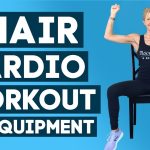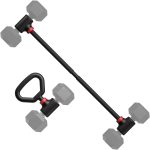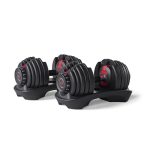Fitness supplements flood the market. Do they really help your workouts?
Many people seek supplements to boost their fitness journey. With so many options, it’s hard to know which ones deliver real results. Some promise increased energy, while others claim muscle growth. But do they truly work as advertised? Understanding which supplements are effective can save time and money.
It’s crucial to know the science behind them and how they fit into your routine. Expert opinions and research can guide you in making informed choices. Exploring this topic helps identify supplements that genuinely support your fitness goals. Let’s dive into what works, what doesn’t, and how to choose wisely for the best results in your fitness journey.
Introduction To Fitness Supplements
Fitness supplements have become a staple in many workout routines. Whether you’re a seasoned athlete or a casual gym-goer, you’ve likely encountered a wide array of powders, pills, and shakes promising to boost your performance. But with so many options, how do you know which ones really work? The key lies in understanding their purpose and dispelling common myths.
Purpose Of Supplements
Supplements are designed to enhance your fitness journey, not replace it. They provide nutrients that might be hard to get from your diet alone.
Think of protein powders aiding muscle recovery, or creatine increasing strength. These supplements can offer tangible benefits when used correctly.
Consider your goals first. Are you looking to build muscle, increase endurance, or lose weight? Choose supplements that align with your objectives.
Remember, supplements are most effective when combined with a balanced diet and consistent exercise. They should complement, not substitute, these essential elements.
Common Misconceptions
Many believe supplements are miracle solutions. This is far from the truth. They can’t magically transform your physique overnight.
Another misconception is that natural equals safe. Just because a supplement is derived from natural sources doesn’t mean it’s free from side effects. Always research and consult a healthcare professional before starting any new supplement.
You’ve probably heard that more is better. In reality, excessive intake can lead to health issues. It’s crucial to adhere to recommended dosages for optimal results.
Reflect on your own experiences with supplements. Have you ever felt disappointed by their promises? This is a common feeling when expectations are unrealistic. Approach supplements with a grounded perspective, and you’ll find they can be a valuable addition to your fitness routine.
Are you choosing supplements based on marketing hype or solid research? Asking questions like this can guide you toward smarter choices and better results.

Credit: www.singlecare.com
Evaluating Supplement Effectiveness
Finding the right fitness supplement can be challenging. Many products claim to enhance your workout. But not all deliver on promises. Evaluating supplement effectiveness is crucial. It ensures you get value and results.
Criteria For Effectiveness
Several factors determine a supplement’s effectiveness. Ingredients are vital. Check for clinically proven substances. Dosage matters too. It should match scientific recommendations. Safety is another priority. Look for products with minimal side effects. Finally, consider your fitness goals. Choose supplements aligned with your objectives.
Scientific Research Importance
Scientific research supports supplement claims. It provides evidence of benefits. Studies show how ingredients work. They also reveal potential risks. Peer-reviewed research is trustworthy. It involves expert evaluation. Look for supplements backed by solid studies. This ensures you make informed choices.
Protein Powders
Protein powders are a popular choice for fitness enthusiasts. They offer a convenient way to increase protein intake. Many people use them to support muscle growth and recovery. But not all protein powders are created equal. Understanding their benefits and types can help you choose wisely.
Benefits For Muscle Growth
Protein is essential for building and repairing muscles. It helps you recover faster after workouts. Protein powders provide a concentrated source of protein. This aids in muscle synthesis and growth. They are especially useful for those with high protein needs. Athletes and bodybuilders often rely on them to meet their goals.
Types Of Protein Powders
There are several types of protein powders available. Each has unique characteristics and benefits. Whey protein is the most popular. It is fast-digesting and rich in essential amino acids. Casein protein digests slowly, providing a sustained release of nutrients. It is ideal for nighttime recovery.
Plant-based protein powders are also an option. They cater to vegans and those with dairy allergies. Common sources include pea, soy, and hemp. These powders offer a variety of nutrients and benefits. They are often enriched with vitamins and minerals.
Choosing the right protein powder depends on your goals. Consider digestion speed and dietary preferences. Experiment with different types to find the best fit for your needs.
Creatine Monohydrate
Creatine Monohydrate is a popular supplement among athletes and fitness enthusiasts. Known for its potential to enhance strength and muscle mass, it’s backed by numerous studies. Many swear by its effectiveness in boosting performance during high-intensity workouts. Understanding how it works can help you decide if it’s right for your fitness goals.
Mechanism Of Action
Creatine Monohydrate increases the phosphocreatine stores in muscles. These stores help produce ATP, which is the primary energy source for muscle contractions. During short bursts of activity, ATP is rapidly consumed. Creatine helps replenish ATP, allowing muscles to work harder and longer. This process supports intense efforts like lifting weights or sprinting.
Performance Enhancement
Many athletes notice improved strength and power with creatine. It aids in faster recovery between sets, enabling more reps during workouts. Studies show it can increase muscle mass, thanks to enhanced water content in muscle cells. This boost provides a fuller appearance and may contribute to muscle growth over time. Creatine also supports brain function and recovery, making it a versatile supplement.
Branched-chain Amino Acids (bcaas)
BCAAs, or Branched-Chain Amino Acids, support muscle growth and reduce fatigue. Essential for fitness enthusiasts, they aid in recovery and boost exercise performance. A popular choice among athletes, these supplements can help in maintaining muscle mass during rigorous training sessions.
In the world of fitness supplements, Branched-Chain Amino Acids (BCAAs) have garnered significant attention. Many fitness enthusiasts and athletes swear by them, claiming they are essential for muscle recovery and performance. But what exactly are BCAAs, and do they truly live up to the hype?Role In Muscle Recovery
BCAAs are a group of three essential amino acids: leucine, isoleucine, and valine. These are the building blocks of protein and play a crucial role in muscle repair. After an intense workout, your muscles need these amino acids to recover and grow stronger. Have you ever felt sore for days after a tough gym session? Adding BCAAs to your routine might just ease that discomfort. They help reduce muscle soreness by decreasing the breakdown of muscle proteins during exercise.Optimal Usage
Timing and dosage are key when it comes to getting the most out of BCAAs. Many experts recommend consuming BCAAs before or during your workout to fuel your muscles efficiently. Others find taking them post-workout aids in quicker recovery. It’s important to read the label of your BCAA supplement to ensure you’re getting the right amounts. Typically, a daily intake of 5-10 grams is suggested, but you should adjust based on your specific needs and goals. Does the idea of adding yet another supplement to your routine seem overwhelming? Start small. You might find that a simple addition like BCAAs makes a noticeable difference in your recovery and performance. Always listen to your body and consult with a fitness professional if you’re unsure about the right approach for you.Beta-alanine
Beta-Alanine is a popular supplement among fitness enthusiasts. It is known for enhancing performance during high-intensity exercises. This amino acid helps in increasing the levels of carnosine in muscles. Elevated carnosine levels can delay the onset of muscle fatigue. Many athletes and gym-goers use Beta-Alanine for better endurance and improved workout results.
Impact On Endurance
Beta-Alanine boosts endurance by reducing fatigue. It allows muscles to perform longer without tiring. This can lead to enhanced workout sessions. Athletes often notice improvements in their sprinting or weightlifting routines. High-intensity exercises become more manageable with Beta-Alanine. It is especially effective in short bursts of activity.
Side Effects And Safety
Beta-Alanine is generally safe for most users. Some might experience a tingling sensation called paresthesia. This feeling usually fades after a short time. Taking smaller doses can help reduce this effect. Long-term use of Beta-Alanine has not shown any severe health risks. Consulting a health professional before starting any supplement is advised.
Caffeine As A Pre-workout
If you’ve ever wondered whether caffeine could be your secret weapon for a powerful workout, you’re not alone. Many fitness enthusiasts swear by it for an extra push. But does it really make a difference? Let’s dive into the specifics and explore how caffeine can transform your fitness routine into a high-energy session.
Energy Boosting Properties
Caffeine is known for its ability to elevate your energy levels. It does this by blocking adenosine, a neurotransmitter that promotes sleep and relaxation. This leads to increased alertness and a surge of energy, helping you tackle intense workouts with vigor.
Imagine getting up for that early morning gym session and feeling sluggish. A dose of caffeine can make you feel alive and ready to lift, run, or push through your workout. It’s like flipping a switch from tired to energized.
But remember, caffeine’s power isn’t just about feeling awake. It can also enhance endurance, allowing you to sustain longer periods of physical activity. This means you can keep going when others might hit the wall.
Recommended Dosage
Finding the right caffeine dosage is crucial. Too little might not give you the desired effect, while too much can lead to jitters. Experts suggest starting with 3-6 mg per kilogram of body weight.
To put this in perspective, if you weigh 70 kg, aim for about 210-420 mg of caffeine. This can be found in coffee, tea, or even caffeine supplements designed for workouts. Always check the labels for accurate information.
It’s also wise to consider your tolerance. If you’re new to caffeine, start on the lower end and gradually increase. Listen to your body—if you feel jittery or anxious, dial it back.
Have you ever tried caffeine as a pre-workout? What was your experience? Did it give you the boost you needed? Share your thoughts in the comments below. Your insights could be the missing piece for someone looking to amp up their fitness game!
Vitamins And Minerals
Fitness supplements often include essential vitamins and minerals to support bodily functions. These nutrients may enhance energy and recovery. Choosing supplements with proven ingredients like vitamin D and magnesium can aid fitness goals effectively.
In the world of fitness supplements, vitamins and minerals often take center stage. They’re not flashy, but they are essential. They support your body’s basic functions, helping you perform at your best. Whether you’re lifting weights, running marathons, or just trying to stay healthy, understanding how vitamins and minerals can benefit your fitness journey is crucial. Let’s dive into how these nutrients can support your overall health and athletic performance.Supporting Overall Health
Vitamins and minerals are the building blocks of a healthy body. They support everything from your immune system to your bone health. Imagine you’re trying to build a strong house; vitamins and minerals are like the nails and screws that hold everything together. Consider your vitamin D intake. It’s crucial for bone health, especially if you spend a lot of time indoors. You might be surprised to learn that even a shortfall in this vitamin can lead to fatigue and poor performance. Are you getting enough vitamin C? It’s not just for avoiding the common cold. It also helps repair tissues after a tough workout.Critical Nutrients For Athletes
Athletes need more than just protein shakes and energy bars. Critical nutrients can make a big difference in your performance. Magnesium, for instance, is vital for muscle function. Without it, you might experience cramps or muscle weakness. Think about iron. It plays a key role in oxygen transport. If your iron levels are low, you might feel tired or struggle to hit your fitness goals. Zinc is another nutrient to watch. It aids in recovery and helps your muscles grow stronger. Are you paying attention to your nutrient intake? Getting the right vitamins and minerals can be a game-changer. It’s easy to overlook these small elements, but they are often the missing pieces in your fitness puzzle. So, next time you’re stocking up on supplements, remember the essential role vitamins and minerals play in your health and performance.Supplements To Avoid
Fitness supplements promise quick results. Many don’t deliver. Some even harm health. Knowing which supplements to avoid can save time and money. It ensures you stay healthy. Let’s explore ineffective products and potential health risks.
Ineffective Products
Many supplements claim to boost performance. Few actually do. Fat burners often make promises. They rarely lead to weight loss. They can contain fillers. These fillers do nothing for health. Muscle-building powders often disappoint. They might not have enough protein. Some pre-workout drinks promise energy. The energy boost is often minimal. These products might waste your money.
Potential Health Risks
Some supplements risk your health. Unregulated products can be dangerous. They might contain harmful ingredients. Some weight-loss pills can raise blood pressure. High caffeine levels may cause jitters. Heart palpitations might occur. Unknown ingredients can harm organs. Kidney or liver damage is possible. Always check labels. Avoid supplements with unclear information.

Credit: bachperformance.com
Conclusion And Recommendations
Understanding which fitness supplements actually work is essential. The market is flooded with options, but not all are effective. Choosing wisely can enhance your fitness journey. This section provides valuable insights on selecting the right supplements. Let’s explore key recommendations.
Choosing The Right Supplements
Identify your fitness goals. Are you aiming for muscle gain or weight loss? Different goals require different supplements. Research each option thoroughly. Look for scientific studies backing their effectiveness. Check the ingredients for purity and quality. Avoid products with unnecessary additives. Choose supplements with transparent labeling. This ensures you know exactly what you’re consuming.
Consultation With Professionals
Consulting a healthcare professional is crucial. They can guide you based on your health needs. They assess any medical conditions that might interact with supplements. A fitness trainer can also provide advice. They understand what works best for your specific goals. Professional guidance helps avoid potential side effects. It ensures you make informed decisions about supplementation.

Credit: www.youtube.com
Frequently Asked Questions
Are There Any Workout Supplements That Actually Work?
Yes, some workout supplements are effective. Protein powders aid muscle recovery, while creatine boosts strength and performance. BCAAs support muscle growth, and caffeine enhances endurance. Always consult a healthcare professional before using supplements to ensure safety and proper dosage. Quality brands and balanced nutrition are crucial for best results.
Do Exercise Supplements Really Work?
Exercise supplements can enhance performance and recovery if used correctly. They offer benefits like increased energy and muscle growth. Research supports effectiveness, but results vary based on individual factors. Consult a healthcare professional before use to ensure safety and suitability.
Quality and dosage are crucial for optimal results.
What Is The Best Supplement To Take To Go To The Gym To Work Out?
Pre-workout supplements like creatine, BCAAs, and caffeine boost energy and enhance performance. Protein powders aid muscle recovery. Consult a healthcare professional before use to ensure safety and effectiveness. Choose supplements based on personal fitness goals and dietary needs for optimal results.
Do Any Health Supplements Really Work?
Some health supplements can work effectively, especially those backed by scientific research. Vitamins and minerals support bodily functions. Omega-3 fatty acids benefit heart health. Probiotics improve gut health. Consult a healthcare provider for personalized advice. Always choose reputable brands for quality assurance.
Conclusion
Finding the right fitness supplements can boost your workouts. Not all supplements work the same for everyone. Research and consider your health needs. Consult a doctor before trying new products. Choose supplements backed by science and positive reviews. Listen to your body and adjust as needed.
Supplements can aid progress, but balanced nutrition remains crucial. Exercise, sleep, and diet are key to fitness success. Stay informed and make smart choices. Your fitness journey is personal. Tailor your approach to fit your goals and lifestyle. Keep moving forward and stay committed to your health.




